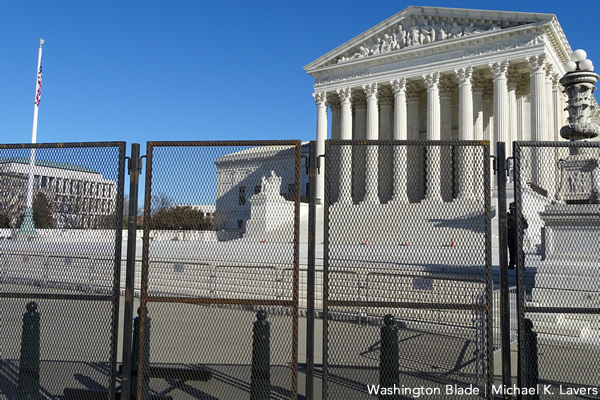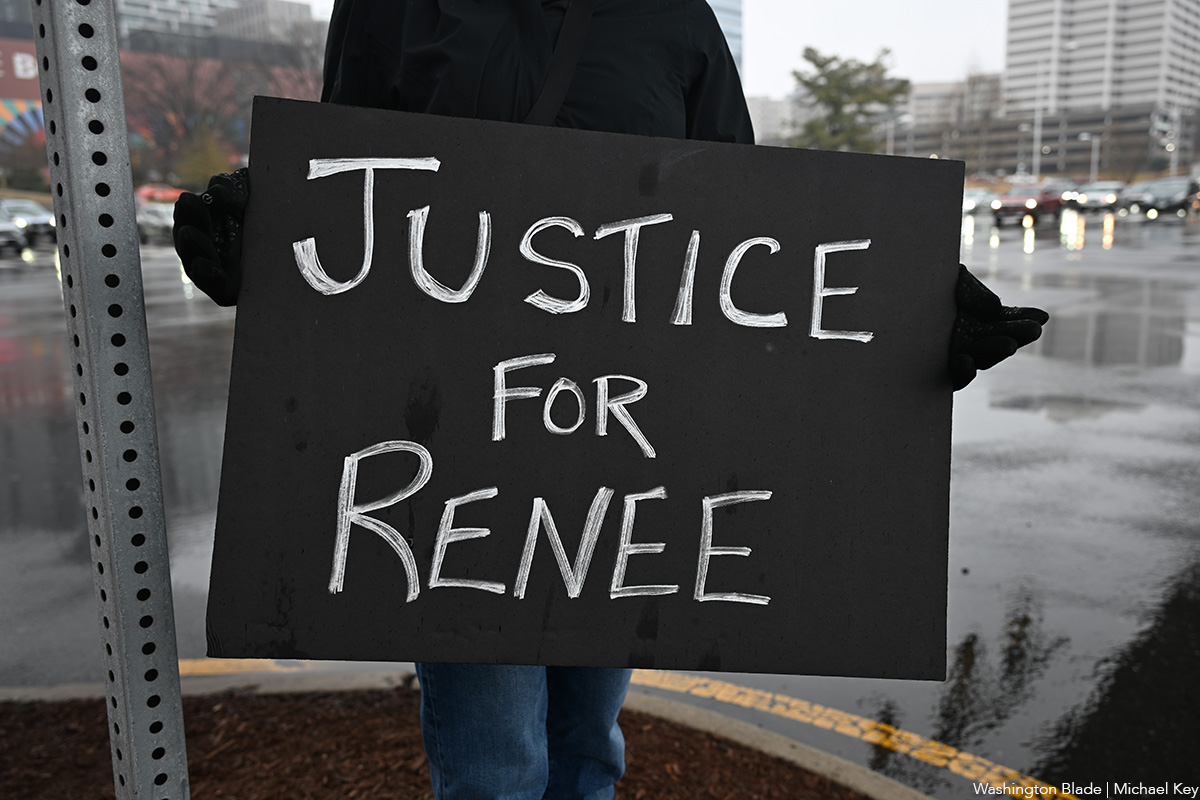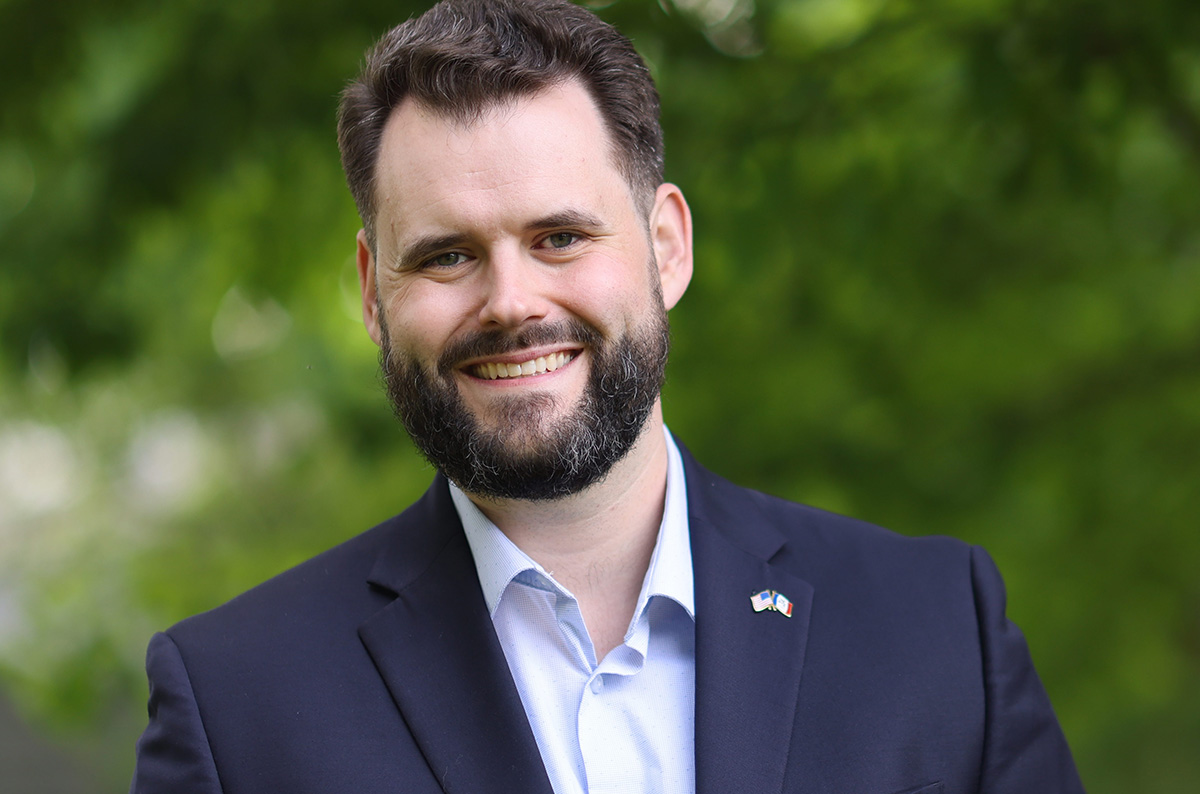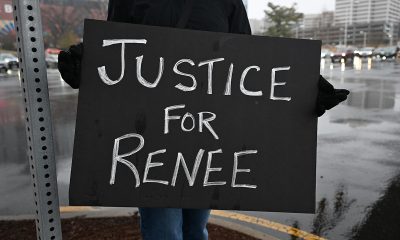Opinions
Supreme Court poised to roll back LGBTQ rights
Rebalance stolen court via expansion, term limits

LGBTQ advocates were rightly relieved when the Supreme Court handed down Bostock v. Clayton County this past June, a case that extended the prohibition against discrimination in employment to include discrimination based on sexual orientation and gender identity. And with the most LGBTQ-friendly President-elect in U.S. history poised to take office in a matter of days, our community has even more reason to be hopeful.
Despite these positive developments, however, the Supreme Court poses a grave danger to the LGBTQ community. As the court ushers in a new era of conservative dominance—with anti-LGBTQ justices holding a 6-3 supermajority—the fragile judicial coalition on which the movement for equality has relied is at significant risk of being cast aside.
Justice Amy Coney Barrett’s recent confirmation to the court is deeply concerning. Justice Barrett has defended Justice Roberts’ dissent in Obergefell, indicating that the issue of marriage equality should belong to state legislatures. She has repeatedly used transphobic and homophobic language, and even argued that Title IX does not protect transgender people. Her extremist positions will embolden the anti-LGBTQ conservative justices on the court – Justices Kavanaugh and Alito recently held an inappropriate private meeting with an anti-gay activist who had filed briefs in pending cases — and other Trump-appointed judges, as well as state legislatures to take anti-LGBTQ stances. With equality hanging in the balance, the LGBTQ community cannot afford a Supreme Court that stands to crush any progress made.
Marriage equality: In October, the Supreme Court denied certiorari to a case involving Kentucky woman Kim Davis, who refused to issue marriage licenses to same-sex couples. However, the denial of certiorari came with warning signs: Justices Alito and Thomas wrote a section that cast doubt on the constitutionality of Obergefell, the landmark Supreme Court case in which Justice Kennedy’s opinion that held that marriage is a fundamental right guaranteed to same-sex couples by the Constitution. In the certiorari denial, Justice Thomas wrote: “By choosing to privilege a novel constitutional right over the religious liberty interests explicitly protected in the First Amendment, and by doing so undemocratically, the Court has created a problem that only it can fix. Until then, Obergefell will continue to have ‘ruinous consequences for religious liberty.’” While broad majorities of the American people support marriage equality and opponents of it might not have the votes on the Supreme Court to overturn the precedent, it is nonetheless a troubling sign that two Justices would sign onto discrimination against our fellow citizens.
Discrimination: The currently pending case before the Supreme Court about discrimination is Fulton v. City of Philadelphia. The case emerged from circumstances in 2018: The city of Philadelphia had hired a number of agencies for foster care service. When the city learned that two agencies denied same-sex couples as foster parents, Philadelphia threatened to stop using the agencies unless they agreed to nondiscrimination requirements. While one of the agencies complied, the other, the Catholic Social Services (“CSS”), sued the city in federal district court. The federal district court found in Philadelphia’s favor, which the Third Circuit then unanimously affirmed. Nonetheless, the Supreme Court granted certiorari.
The CSS claims that because the city looks to several factors, including religious and racial factors, in spite of anti-discrimination law, it cannot at the same time prohibit the agency from considering the sexual orientation of foster parents under the guise of “religious belief.” If Philadelphia makes exceptions to its anti-discrimination laws in foster placement, it must also allow religious agencies an exception as well. If Philadelphia does not do so, it violates the First Amendment. The city claims that it can choose not to provide government contracts to organizations that do not adhere to its nondiscriminatory requirements. For the court to decide otherwise, it would mandate that the city discriminate.
The stakes are high, in part because a ruling against equality in Fulton could provide cover for undermining Bostock, which extended Title VII protections to LGBTQ employees. An expansion of the religious liberty to discriminate could eat away at Bostock. Even a 5-4 court with Justice Kennedy ruled against LGBTQ rights in Masterpiece Cakeshop. Now, with a 6-3 conservative supermajority, Fulton could strike a big blow against equality.
Health care and family: If the Supreme Court strikes down the Affordable Care Act (ACA) in California v. Texas, health care protections for the LGBTQ community would be eliminated. Section 1557 of the ACA is the law’s non-discrimination provision, which bans discrimination in health care on the basis of sex. The Obama administration’s rule interpreted Section 1557’s ban on sex discrimination to include discrimination on the basis of sexual orientation and gender identity. In addition to Section 1557, the ACA as a whole has been enormously important for the LGBTQ community. The uninsured rate for lesbian, gay and bisexual Americans fell dramatically due to the ACA and LGBTQ adults have become more likely to report having regular access to health care. For transgender Americans, who are more likely to live in poverty or be unemployed and to face enormous challenges and have negative experiences accessing health care, the ACA’s Medicaid expansion and provision of individual health insurance through the marketplaces are critical. The 6-3 conservative supermajority on the court makes the end of the ACA significantly more likely, with disastrous consequences that will disproportionately affect the LGBTQ community.
Lawsuits challenging the Obama administration’s interpretation of Section 1557, particularly in regard to its ban on discrimination on the basis of gender identity, have been percolating in the federal courts for years. The Trump administration has attempted to reverse those protections, but it is widely expected that the Biden administration will revert to the Obama-era rule. Even if the ACA survives, this line of litigation could undermine critical protections for transgender individuals in the health care system. While the Supreme Court’s decision in Bostock v. Clayton County last term interpreting similar language in Title VII (discrimination on the basis of sex) to cover gender identity should be definitive, the 6-3 conservative supermajority could decide to distinguish these cases and allow for discrimination against LGBTQ individuals in health care. Since so many of the nation’s hospitals are affiliated with religious organizations such as the Catholic Church, the court could seize on Justice Gorsuch’s language in Bostock suggesting that the Religious Freedom Restoration Act (RFRA) could trump Title VII to require broad religious exemptions from non-discrimination in health care.
Transgender rights: In addition to the massive blow that a gutted ACA could have for transgender rights, other cases about transgender rights percolating in the lower courts may someday make their way to the Supreme Court. In Saba v. Cuomo, for example, a transgender, nonbinary resident sued the state of New York for refusing to allow Mx. Saba to obtain a driver’s license that accords with Mx. Saba’s gender identity. In August, a lower court preliminarily enjoined Idaho’s law that barred transgender women from participating on women’s sports teams. That decision is currently being appealed.
Just this past year, the Fourth Circuit and the Eleventh Circuit considered whether school bathroom policies violated transgender students’ rights. Though both circuits ruled in favor of the students, the Grimm case briefly reached the Supreme Court in 2017 before being sent back to the lower court. In 2019, the Supreme Court rejected certiorari in a case involving transgender bathrooms, leaving a lower court’s trans-affirming decision in place. But it only takes four votes for the Court to take a case, and with a 6-3 supermajority now firmly in place, there is no telling the havoc it could wreak on transgender rights.
As we celebrate the end of the Trump era, and as we prepare to work with the incoming Biden administration to restore rights that have been destroyed over the past four years while advancing the case for equality, the LGBTQ community must pay attention to the danger posed by anti-LGBTQ justices, and we must advocate forcefully for judicial reforms such as court expansion and term limits that rebalance the stolen, illegitimate court.
Aaron Belkin is the director of the Palm Center and of Take Back the Court, and a political science professor at San Francisco State University.
Opinions
Do not forget that Renee Good was queer
Far-right media link shooting victim’s sexuality to her protest of ICE

Please do not forget that Renee Nicole Good was a queer woman.
Last week, Good, a 37-year-old American citizen, was shot and killed by a United States Immigration and Customs Enforcement agent in Minneapolis. Her wife Rebecca Good was present when the ICE agent shot her, standing outside their car. In the immediate aftermath, Minneapolis erupted with protests aimed at ICE in the city and Republican officials, including President Donald Trump and Vice President JD Vance, who argued the shooting was justified as an act of self-defense.
In a press conference held this past Thursday, Vance told reporters that Good was “a victim of left-wing ideology.” “I can believe that her death is a tragedy,” Vance said,” while also recognizing that it is a tragedy of her own making.” Many criticized Vance’s statement, especially given how he blamed “left-wing extremism” for Charlie Kirk’s death in September on a Utah campus and Vance himself doubled down on condemning those who were celebrating the far-right podcaster’s fatal shooting.
Department of Homeland Security Secretary Kristi Noem implied that Good was a domestic terrorist while Fox News host Jesse Watters said that “the woman who lost her life was a self-proclaimed poet from Colorado with pronouns in her bio.”
Laura Loomer, another far-right Trump supporter, tweeted, “‘She/her.’ Literally every time,” in response to what is believed to be Good’s Instagram account. Loomer and Watters both pointed out her pronouns are somehow part of the reason she was tied to ICE-related violence.
As these comments from far right pundits show, far-right media coverage was quick to connect Good’s queerness to her work to inhibit ICE activity in Minneapolis.
But while far-right news outlets highlighting Good’s queerness, centrist and even leftist news outlets also erased her wife’s experience, featuring interviews with Good’s mom and ex-husband but not her wife who was present for the shooting, feeding into the narrative that she was an “innocent” white mother while denying Good’s own agency in mobilizing for immigrants in her community.
Nobody should be shot by government agencies ever, and these news outlets do not need to play into the construction of an “innocent” white woman for people to be outraged by her death. In fact, in doing so and denying Good’s queerness, they deny the way in which Good’s identity likely affected the way she interacted with the police. For queer and trans people, police are not safe people–in fact, Good’s last words deescalating the situation reflect the ways that homophobia and misogyny prime queer women, and all women to placate men’s emotions.
And it still didn’t work. After shooting her, the ICE agent called her a “fucking bitch,” in front of her wife who was kept away from Good while she bled out in her car.
When the media reinforces the narrative that she was an “innocent” mother, it reinforces the same sexism and racism that allows police brutality to continue.
In an interview, author of the book After Purity released this past December, Sara Moslener said that “White womanhood has been constructed to require that white women sort of maintain purity within themselves as a way to maintain the purity within themselves as a way to maintain the purity of, the innocence of, the nation state. When the purity movement resurfaced in the 1990s, it was this recapitulation of the 19th century nation of sexual purity that was highly racialized.”
“It wasn’t something that was accessible to enslaved women, to other women of color, to immigrant women. It was this ideal of true womanhood that became connected to this idea of a strong nationstate. That rhetoric was then used to justify racial terror lynchings. If white women were threatened, you know, physically, bodily, culturally, they have the right to claim things. This was often used as a guise to justify violence and murder, especially against Black men. It even ties to the concept of Karen and the entitlement of white women, where they can weaponize their vulnerability,” Moslener said.
Good’s shooting for many people was a breaking point for this very reason — because it represented the first time that they had witnessed a white person killed by an ICE agent or a member of the police.
For some, their whiteness had been a source of safety because of the privilege of their skin color, or so they thought until Good’s murder this past week. In the aftermath, they are rethinking if this privilege will continue to protect them and what it can mean in a world where violence against white women’s bodies has long caused social backlash.
This is not a reason to stop fighting — Good was not the first person killed by ICE, not even the first person killed by ICE in 2026, but her whiteness is one of the central reasons that it incited outrage — because of a society that privileges and protects white women’s bodies. To describe Good as solely an “innocent” white woman, to deny her queerness, is to play into this performance of outrage about the brutalization of white women’s bodies.
If discussions of Good’s queerness — and persistent queerphobia against queer women — is not considered in our outrage, in our protests, we feed right into the same narratives that mean some police brutality, especially that against queer and trans people and people of color, goes completely unreported and unchallenged.
This is state-sanctioned violence, and in the immediate aftermath of Good’s death, the Trump administration has demanded that people deny the evidence of their eyes and ears, has pushed the narrative that Good weaponized her vehicle against an ICE agent and that agent fatally shooting her was an act of self defense. This is categorically false but denying what we know to be true, what we can witness ourselves and understand, is the final step in fascism armed and funded by the government.
But let’s be frank: This is not the first time that the American police or a government agent has murdered an unarmed person. Just under six years ago, George Floyd was murdered by police officers in the same city — his death was a breaking point for many who had witnessed police brutality against people of color.
While people are eager to say Good’s name, we cannot say or remember her without remembering and saying the names of Black and Brown men and women, especially disabled people of color, who have been murdered in the hundreds by the police. Their names are often said, their murders often go unquestioned.
People have been and will continue to say Good’s name largely because she was a white woman but the names of Black and Brown people go unsaid and unrecognized because of a system that performs outrage about violence against white bodies. What Good’s murder realized was how a system built on the protection of white women — a Christian nationalism committed to Social Purity — will still sacrifice white women who refuse to fall in line.
Six federal prosecutors in Minnesota resigned this week over the Justice Department’s push to investigate Good’s widow. Among them was Joseph Thompson, a career federal prosecutor, who objected to investigating Good’s wife as well as the department’s refusal to investigate whether the shooting was lawful.
In the signs, in the protests, in the prayers and pleas that you say and make in the aftermath of Good’s murder, do not deny her queerness, do not deny who she was and do not deny the work she did because in performing outrage against the murder of an “innocent” white mother we replicate the same systems of harm that hurt us all.
Emma Cieslik is a museum worker and public historian.
Letter-to-the-Editor
D.C. electoral bumper car season is in full swing
More than a dozen candidates running for incumbent Eleanor Holmes Norton’s seat

The District of Columbia has entered into a challenging time not seen since Dr. Martin Luther King was murdered, the city burned and rioted and risked home rule being taken away. While statehood has twice passed the U.S. House of Representatives, the dream of being the 51st star on the American flag stagnates, to say the least.
Currently according to Politics 1.com, there are already 14 Democrats including two sitting members of the City Council (At-Large Robert White and Ward 2’s Brooke Pinto) and one Republican who have declared their candidacy to become the new voice in Congress. Unfortunately Congresswoman Eleanor Holmes Norton has refused to either announce her intentions to run for re-election again or gracefully acknowledge her time is over and she is ready to hand over the reins to continue the battles inflicted upon our home city. Congressional representation by press releases has simply got to stop as soon as possible!
Rank choice voting is going to be implemented in this 2026 cycle despite efforts to overturn or delay its implementation. Regardless of your thoughts on the new system, this will be one very interesting contest year to say the least. Rank choice … ready or not … here it comes!
Needless to say, the race for the Congressional seat is not the only major contest. Let us not forget the other positions up for election: the mayor, the attorney general, the chairman of the City Council, several ward and at-large races for the council. Add all these up and you will be looking at more moves on the political chess board than seen in the first Harry Potter film with the same results too. (As an aside, while the District of Columbia has no elected senators, it should be pointed out that any elected House member AND the District mayor have Senate floor privileges when in session.)
Before the June primary, it would be wise to make sure your voting registration is still current at the D.C. Board of Elections. Also, please urge friends not registered to do so as soon as possible. May we have the strength and will power to take back our city and stand up to those who want to destroy it.
Opinions
Zach Wahls stood up for us, now let’s stand with him
Young Iowa Democrat running for U.S. Senate

It was 15 years ago, on Jan. 30, 2011, that a college student, Zach Wahls, bravely stood in front of the Iowa Legislature, and spoke out, defending the marriage rights of his two moms. On Jan. 28 we will celebrate the 15th anniversary of that speech. That was the first time I, and millions of others, heard of Zach Wahls. I know Zach had no idea that speech would propel him to national prominence. It went viral, and Zach was invited to appear on the Ellen DeGeneres show, among other appearances.
At the time, he was an engineering student at the University of Iowa. As he has said, when he prepared his notes over the weekend for his Monday speech to the legislature, he had no idea where this would lead him. Today, so many of us, not just his moms, have the chance to repay him for what he did that day, when he defended all our rights in Iowa. In the past 15 years, Zach has never stopped standing up for the rights of his moms, and for all of us in the LGBTQ community.
I first met Zach at an event in Washington, D.C., when he was leading the fight to allow gay men to be leaders in the Boy Scouts of America. Having been a Boy Scout myself, and an Explorer adviser, and having promoted scouting for the handicapped (the term we used back in those days) this was an important fight for me. I was both honored to meet Zach, and have the chance to join him in that fight. Since then, I have followed his career. First as he went to Princeton for his graduate degree, and then back to Iowa, he is a sixth generation Iowan, to run for, and win, a seat in the Iowa State Senate. He was then elected to the post of minority leader. Today, Zach is running to become the United States Senator from Iowa. Zach is a member of the younger generation so many of us want to see serving in Congress.
As soon as I heard Zach was running, I endorsed him. Many of you may have read my endorsement column in the Blade. He was recently in Washington, D.C. for a fundraiser held at the Women’s National Democratic Club, where I had the pleasure of meeting his wife, and his absolutely adorable son. I kidded him he should never go campaigning without them. Now, it’s important to remember, he is running in Iowa. Not an easy race to win. He has a primary to win, which I firmly believe he will, and then his likely opponent is the ultra MAGA Republican Congresswoman Ashley Hinson (R-Iowa). A poll done just before Sen. Joni Ernst (R-Iowa) said she would not run again, had Zach leading her. That may have been part of the reason she dropped out. If you followed Zach’s career in Iowa, you understand why Iowans would vote for him. If you haven’t, take a look at his website, to get an idea of where Zach stands on the issues, and the things he has been doing to fight for all Iowans. His proposed federal legislation, Keep the Promise Act, would strengthen Social Security. Zach understands we need to defeat the fascists working with the felon in the White House, before they totally destroy our country. He understands we need to fight for affordable healthcare for all, for his constituents in rural Iowa, who are getting hit the hardest by the felon’s policies. Iowa farmers are losing their farms because of the felon’s policies. While continuing to fight for the LGBTQ community, Zach has always understood, we are part of the broader community he is now fighting for.
I hope those of you who read this column, will join with me, support Zach, and be part of the Zoom call on Wednesday, Jan. 28, to celebrate the 15th anniversary of Zach’s speech to the Iowa Legislature. To join, click on this link, and sign up. I also ask you to share this link with everyone you know. Our community owes something to Zach, but everyone will benefit, if Zach Wahls ends up in the United States Senate. He will make us all proud.
Peter Rosenstein is a longtime LGBTQ rights and Democratic Party activist.
-

 Photos5 days ago
Photos5 days agoPHOTOS: ‘ICE Out For Good’ Sunday protests
-

 U.S. Supreme Court3 days ago
U.S. Supreme Court3 days agoSupreme Court hears arguments in two critical cases on trans sports bans
-

 Virginia5 days ago
Virginia5 days agoMark Levine running in ‘firehouse’ Democratic primary to succeed Adam Ebbin
-

 Arts & Entertainment5 days ago
Arts & Entertainment5 days agoTeyana Taylor, Erin Doherty have big night at Golden Globes
















